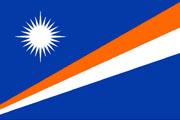His Excellency President Kessai Note asked me to convey his best wishes and expressions of commitment to this special session. Regrettably, his schedule prevented him from being with us today. I am honoured to make a few remarks on behalf of the delegation of the Republic of the Marshall Islands.
At the outset, my delegation commends the important role and dedication of Ambassador Wensley of Australia and Ambassador Ka of Senegal, which led to this very important special session, and applauds the leadership of Secretary-General Kofi Annan. His personal commitment and the guidance contained in his impressive report are greatly welcomed and appreciated. My delegation associates itself with the statement to be made later today by the Minister of Health of Tuvalu on behalf of the members of the Pacific Islands Forum.
Humanity is confronted with the grave challenge of how to effectively respond to the spread of the deadly disease HIV/AIDS. While we respect each other’s diverse cultures, religious beliefs, traditions and other concerns, the destructive force of HIV/AIDS respects no national borders.
Given the limited resources of the Marshall Islands, the lack of adequate infrastructure, the high cost of drugs and a weak technical capacity to effectively fight the spread of HIV/AIDS and other infectious diseases, one confirmed case of a person infected with HIV/AIDS is one case too many, and is a heavy burden that places pressure on our already heavily burdened health-care system. Just like any other small island developing State, the Republic of the Marshall Islands — with a population of 60,000 people, of which more than 42 per cent are between the ages of 15 and 19 — is vulnerable to a situation which will have a far-reaching negative impact on its sustainable economic development plans.
The Republic of the Marshall Islands, along with its neighbouring countries, is faced with these peculiar situations which require revisiting our major groupings within our Organization. The vulnerability of the Marshall Islands to an escalation of HIV/AIDS is intensified due to the high mobility within and across borders, the risky lifestyle choices of youth and the traditional and cultural barriers that make it difficult to talk openly about sexual behaviours. However, the Government of the Marshall Islands must be ready to provide health and clinical services, as well as to strengthen its public-health systems in order to engage all levels of our society through education and provide awareness and prevention programmes, care and access to treatment.
The major thrust of our effort to prevent the disease from establishing a foothold in the Marshall Islands and to reduce the number of sexually transmitted infections, and of other factors that put the Republic at a high risk of HIV/AIDS transmission, is focused on prevention, surveillance and management.
The high degree of mobility of populations requires the development and implementation of improved networks and technical resources, including the exchange of basic and diagnostic information across country borders.
The partnership between the Government of the Marshall Islands and the specialized agencies of the United Nations, the United States of America and Japan to combat the spread of this infectious disease is highly appreciated. I wish also to put on record our gratitude to our European Union partners, as well as to our friends in our region.
The establishment of the fund to combat HIV/AIDS is most welcome, and I wish to applaud the Secretary-General and the cooperation and partnership of civil society, individuals and others for their generosity. We have high hopes and confidence that the fund will be effectively utilized through partnership and effective cooperative efforts. I also wish to encourage the Members of the United Nations to further consider and welcome the generosity of countries that are keen to share their knowledge and technical capacity and are collaborating with our Organization and its specialized agencies to improve the life of peoples of the world. My Government welcomes the interest of the Government of the Republic of China on Taiwan and its generosity in cooperating as a full partner of the World Health Organization and this Organization.

